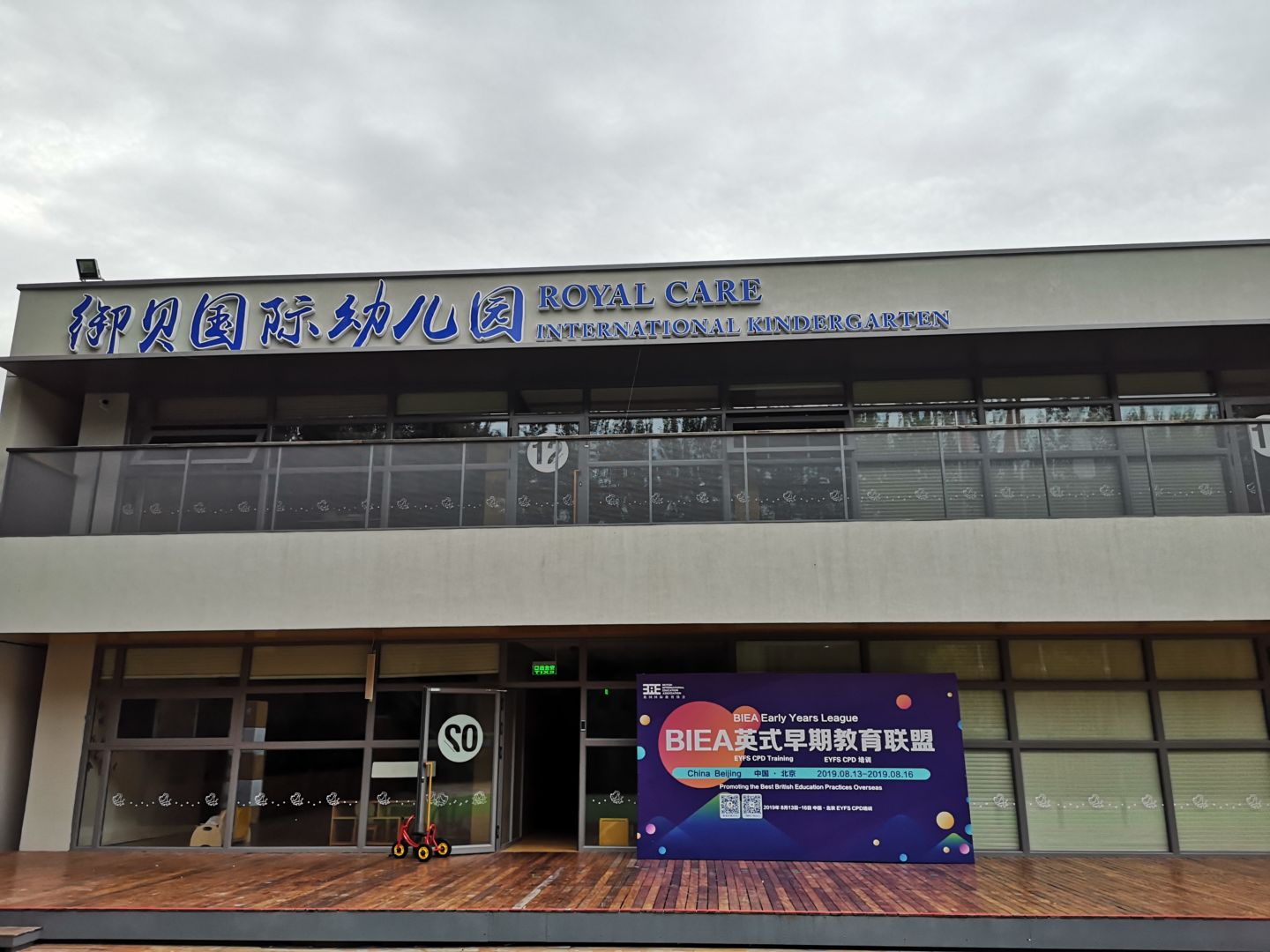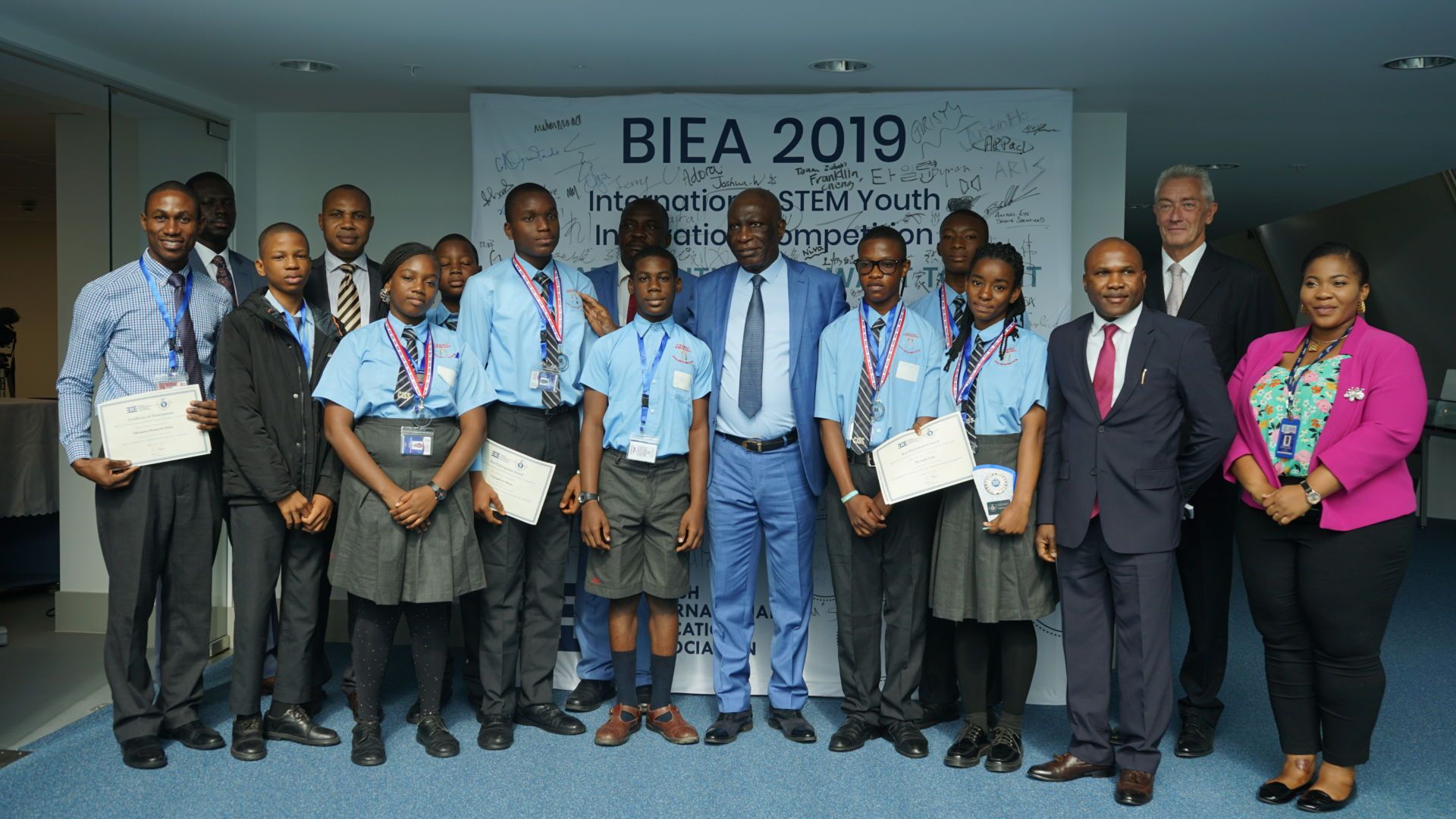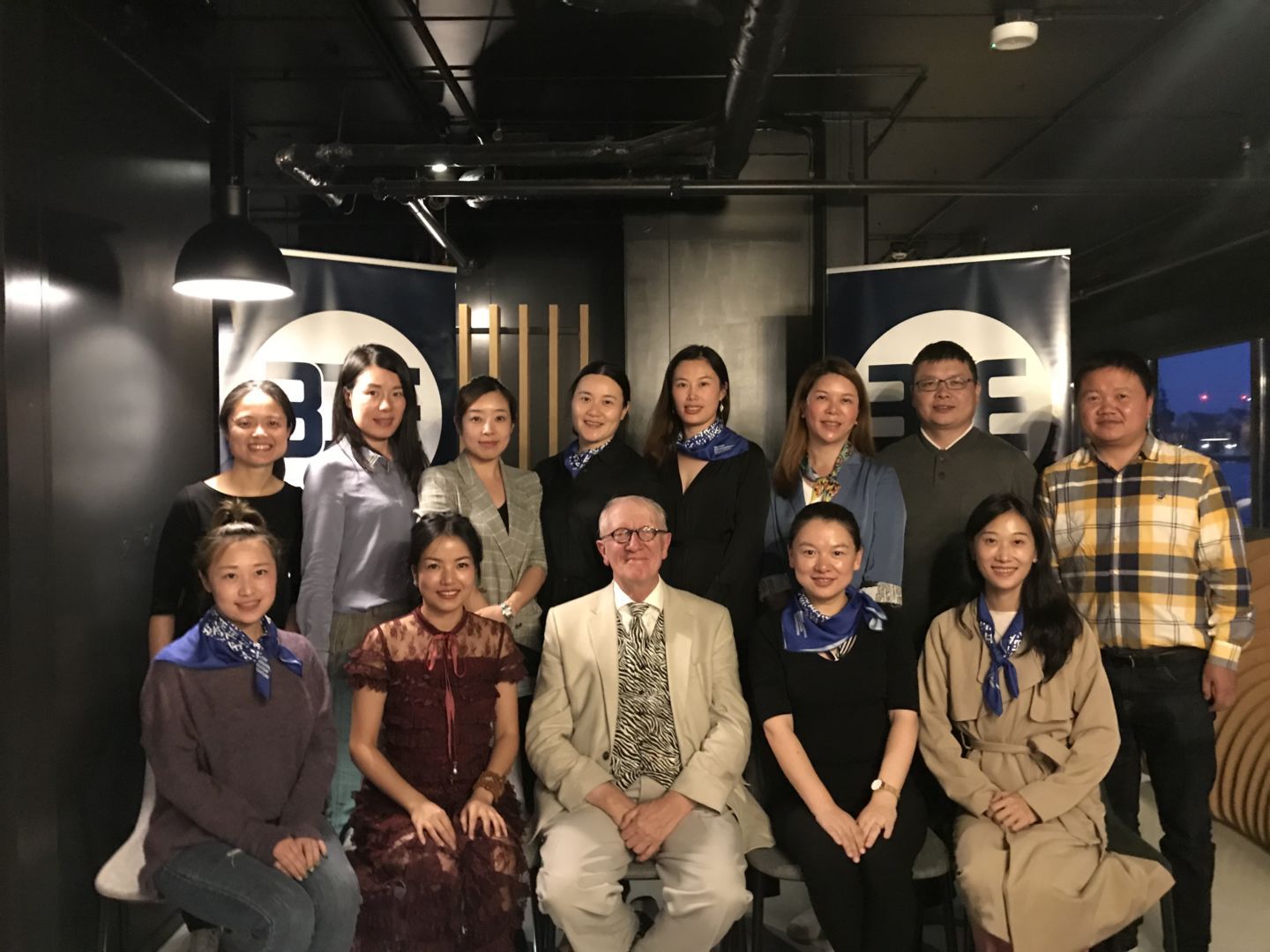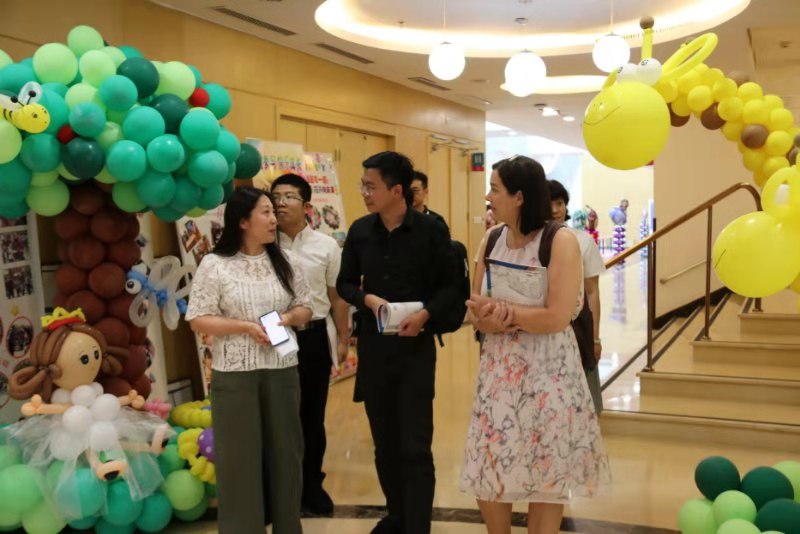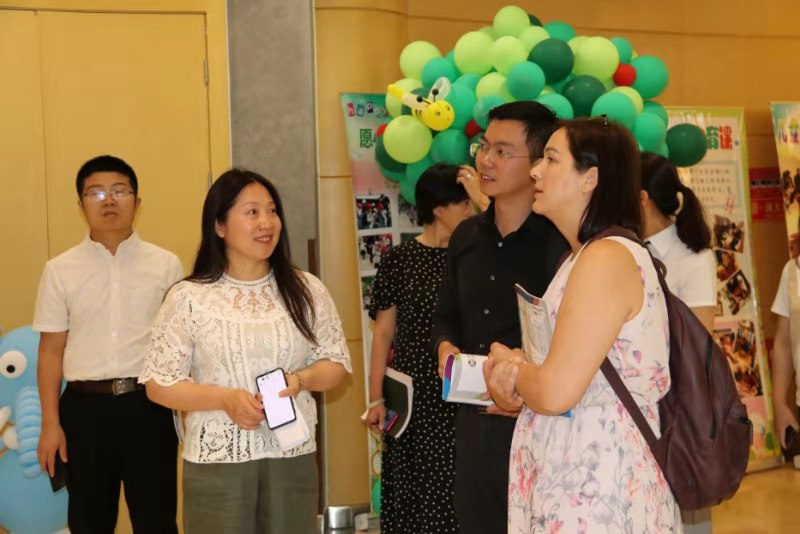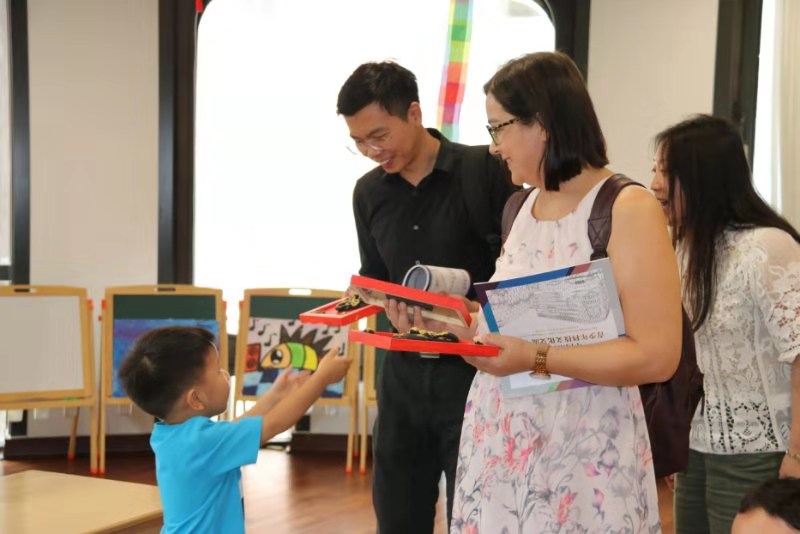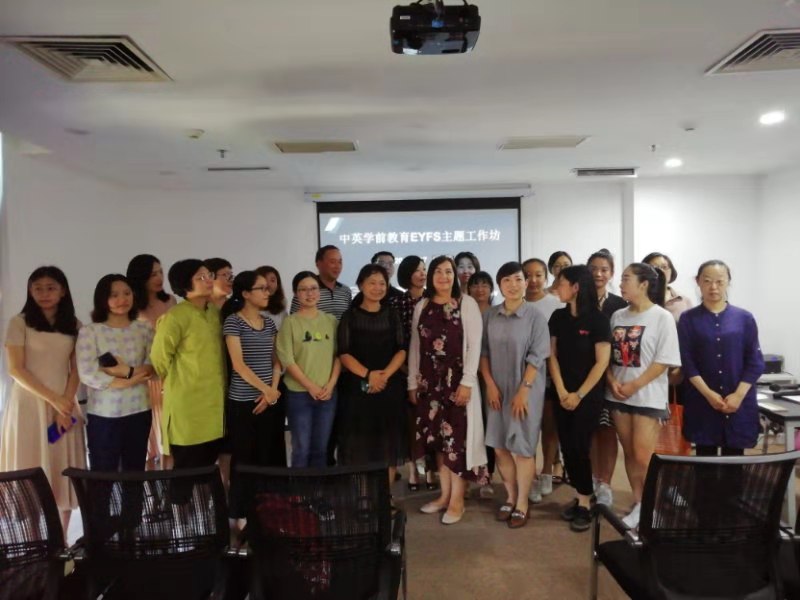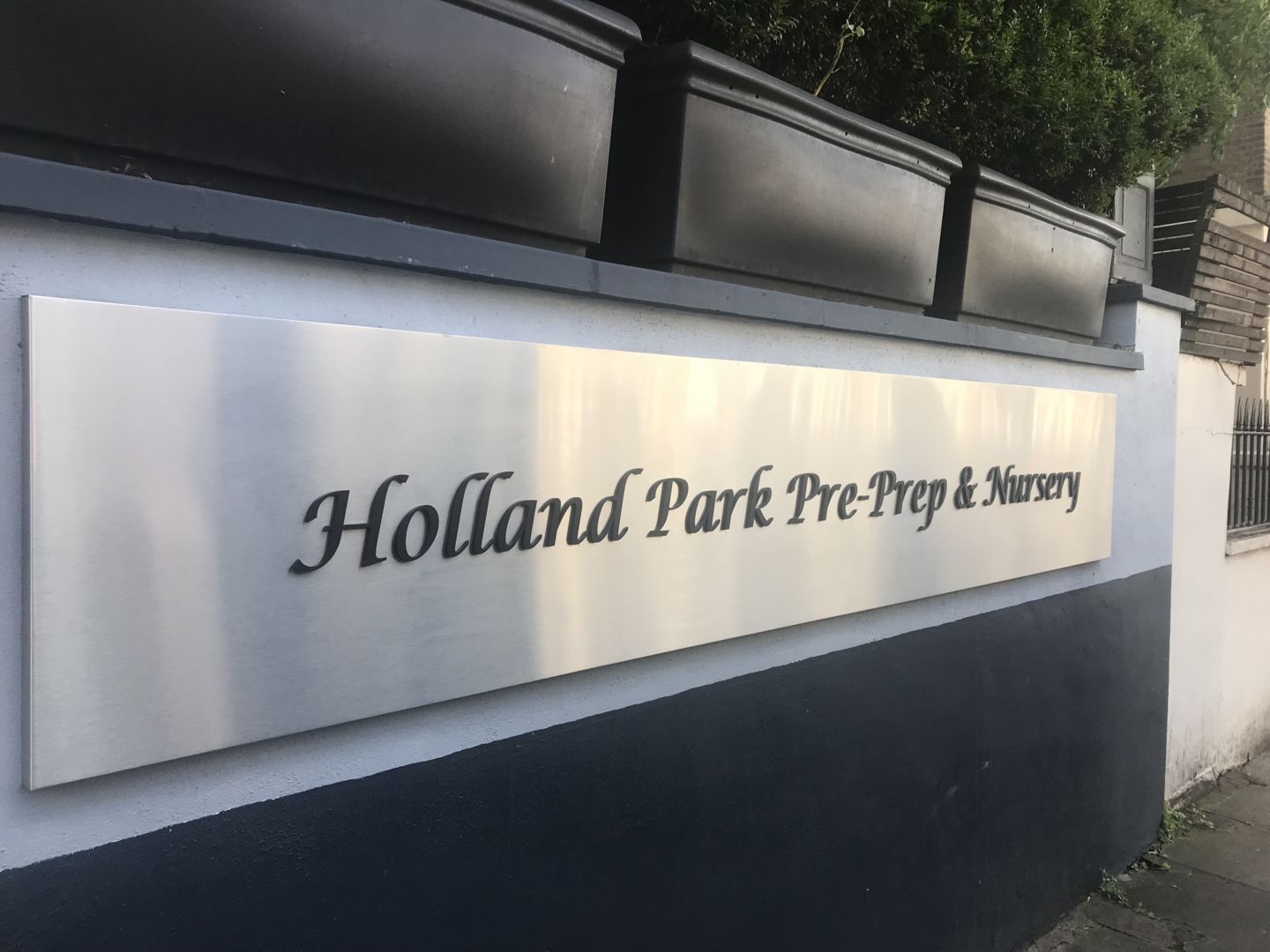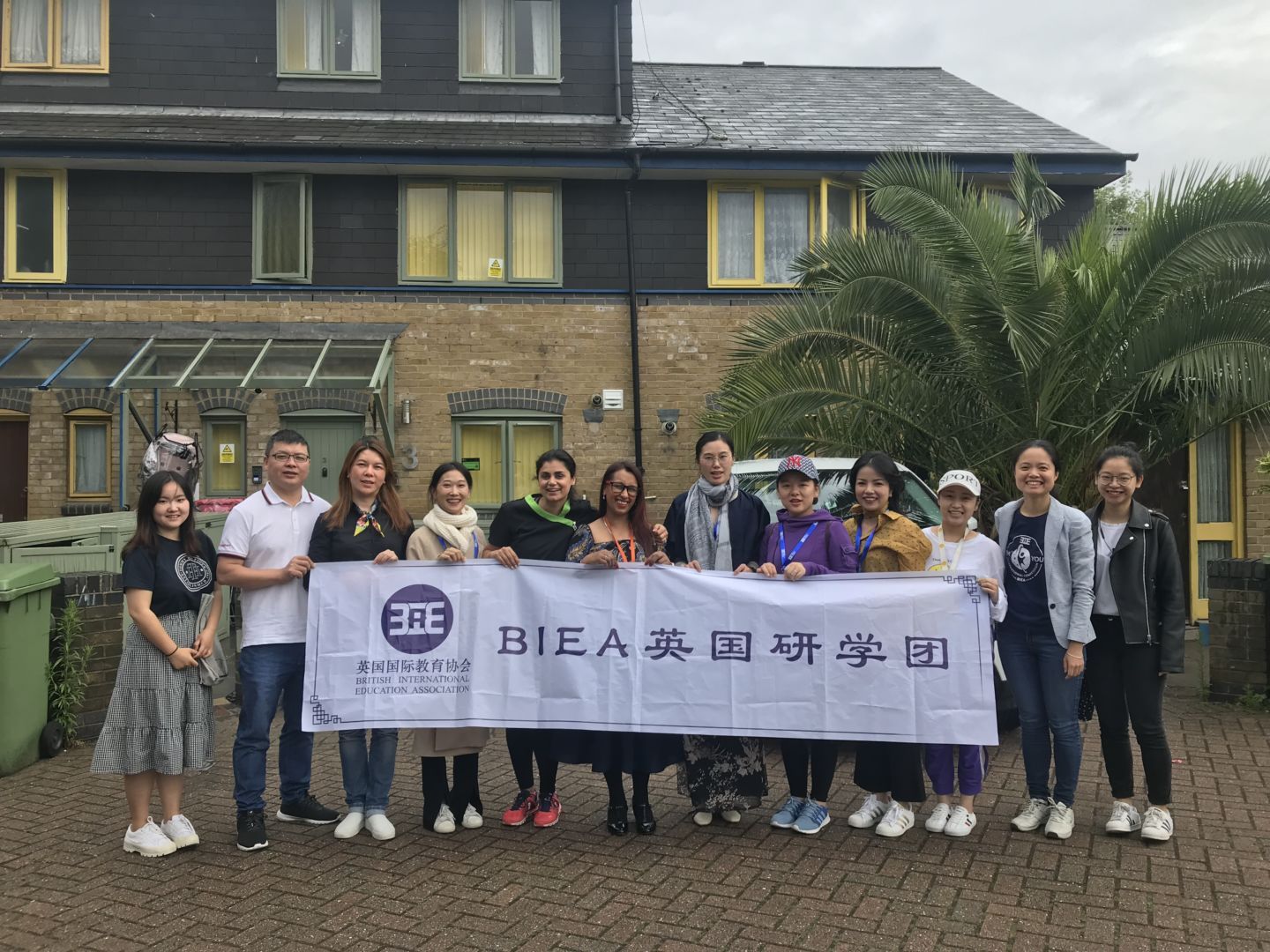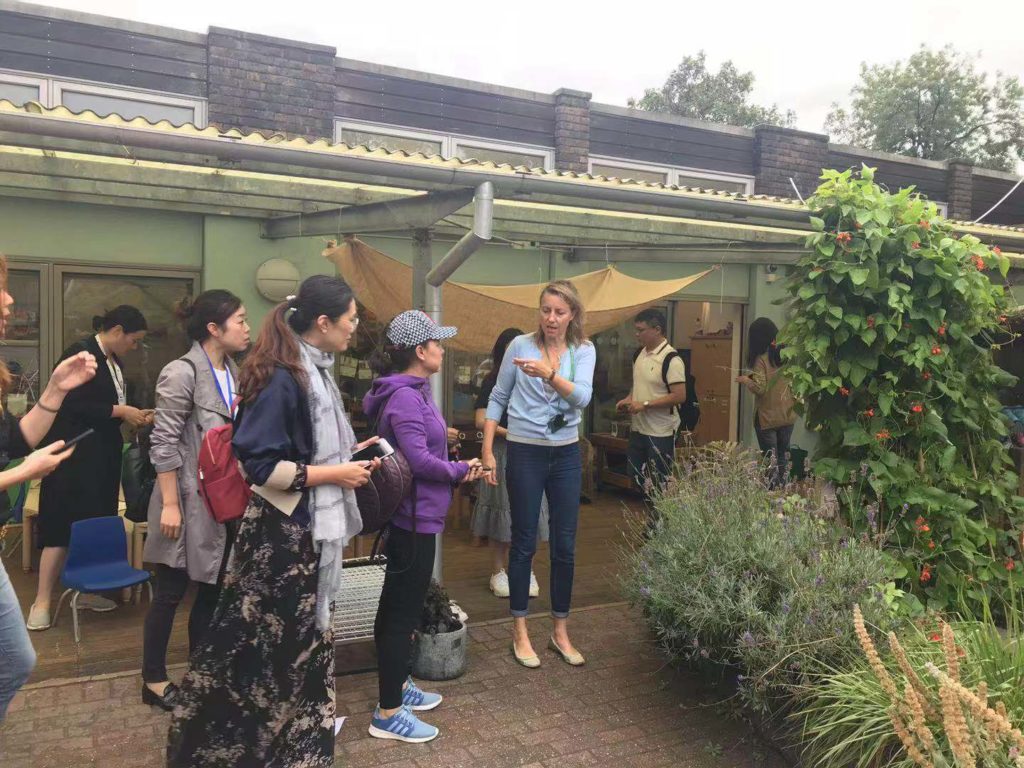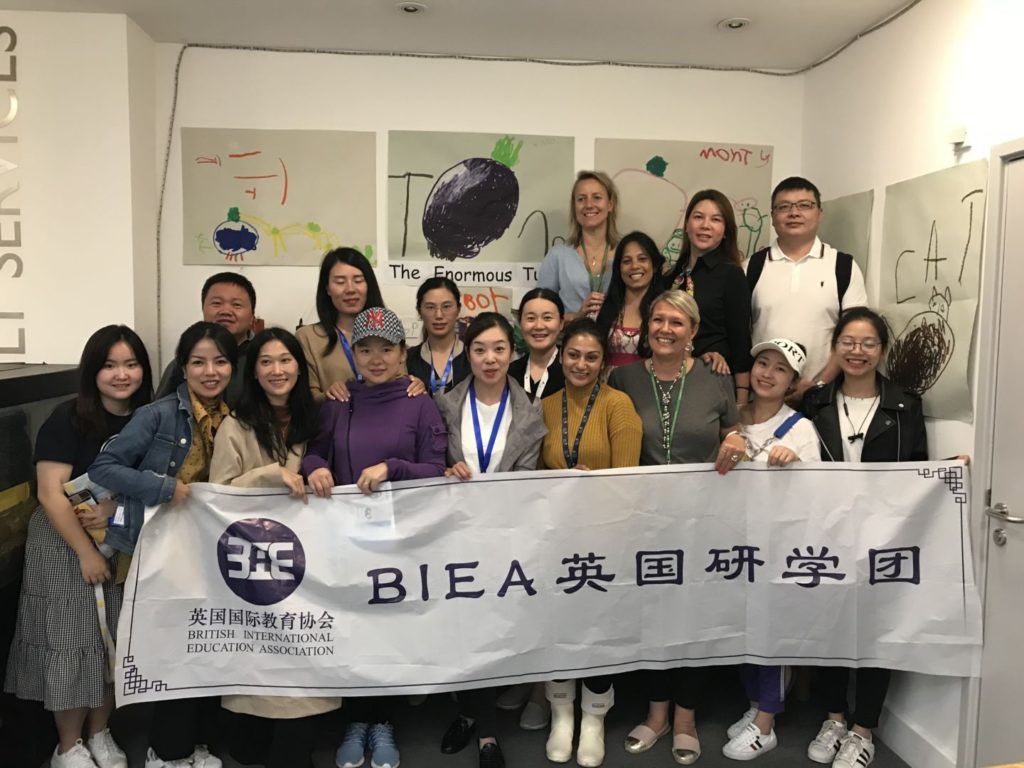Let education happen naturally!
Chengdu-based Inbay Starson Nature Education Garden joins the BIEA E-League
Inbay Starson Nature Education Garden is the latest member to link up with the BIEA E-League. The nursery has successfully integrated the Early Years Foundation Stage (EYFS) teaching system alongside Chinese culture and the Taiwanese conservation system.
Each nursery member that has joined the BIEA E-League has developed teaching characteristics based on the Early Years Foundation Stage concept in the British schooling curriculum.
Development is key
Inbay Starson Nature Education Garden is located in Chengdu, Sichuan province. It covers an area of 9,112 square metres, with a garden area covering 7,400 square metres, giving Inbay Starson Nature Education Garden a reputation of being a true ecological education nursery. The nursery provides professional and standard childcare services for children aged 0-5, bridging classes for children aged 5-6 and natural camp activities for children aged 6-12. The educational concept of “Let education happen naturally” is fully reflected in the teaching services of the entire nursery.
“'Development is Important' is a key theme at the school – and encompasses the seven major areas which increase enthusiasm within the classroom and enable an understanding, creating a favourable environment for EYFS education to flourish.’’
The early years education system in the UK is centred on children - and advocates children's learning and development through the use of games. Childrens' early years education learning goals are achieved through the EYFS teaching cycle and the EYFS key person system, with the BIEA E-League being one of the main projects of the British International Education Association that promotes British style education overseas. Since Inbay Starson Nature Education Garden became a member of the BIEA E-League, the nursery has adapted the EYFS system in order to meet their own needs, by operating a system that integrates EYFS with Chinese culture.
Main Focus
Inbay Starson Nature Education Garden’s main focus is the education of children aged 0-5, however the nursery provides education activities in tandem with nature, tied in with Anglo-Sino integration, for older age groups. The nursery also provides sensory experiences and natural art activities for children aged 3-5, natural life and science activities for children aged 6-8, natural development and physical training for children aged 9-10, and wilderness survival and forest challenge activities for children aged 10-12.
The setting of these thematic activities are closely related to British wildlife education, which is reflected in the EYFS teaching methods. Additionally, Inbay Starson Nature Education Garden sent a key teacher to participate in the BIEA E-League EYFS training in Guangzhou, Guangdong province to equip themselves with EYFS training methods.
Accreditation and training achievements for teachers
At present, Inbay Starson Nature Education Garden's teachers have obtained the nationally recognised nursery teacher certificates. It is anticipated that with a highly skilled team of teachers trained in the BIEA E-League EYFS setting, a rich curriculum resources, and the support of British experts and resources, it will become a highly recognised and outstanding international education centre.
ELQ certification and professional teaching standards
Furthermore, Inbay Starson Nature Education Garden is working towards gaining ELQ certification, while early years institutions working with the EYFS system are eligible for ELQ accreditation from the BIEA. ELQ accreditation works alongside four core standards: an education programme, inclusivity, organisation and management, and children’s well-being. All four core standards are based on a number of key factors, with accreditation taking up to 12 months to complete, subject to an on-site review and assessment.
The BIEA E-League expects Inbay Starson Nature Education Garden to achieve international recognition and a professional ELQ certification in the near future, with professional teaching standards and school quality adhering to the British curriculum.
Preliminary ELQ Inspection of the Yubei Royal Care International Kindergarten
Sharron Fogarty, the head of British International Education Association E-League, carried out an initial review of the Royal Care Kindergarten on August the 20th.
Sharron’s initial review examined all aspects of the nurseries procedures – teaching planning, observation record keeping as well as management procedures and teaching methods etc – with reference to Early Years Qualification (ELQ) standards.
Sharron had interviews and discussions with the Director and teaching staff after observing the methods used in the classes.
After this initial review Sharron expressed the expectation that the nursery would become the first EYFS nursery in China to obtain an ELQ.
African Teens STEM Award – Conservation of endangered African wild dogs with drones
On September 3rd 2019, the British International Education Association was delighted to present the ‘Best Participation Award’ to Team Eagles from CEDEC International Secondary School Nigeria for their impressive effort at the annual BIEA International STEM Youth Innovation Competition. The team missed the grand final due to a string of passport and visa issues, but they were determined to make it to London.
In the hour-long session at the historical Royal Air Force (RAF) Museum, 11th Grader Phebe Joshua, Ekene Umegakwe and Abraham Aniekwe gave a presentation of their research project on the Conservation of African Wild Dogs in front of BIEA’s STEM Chairman David Hanson, Sarah Castle, Vernon Creek from the RAF Museum, and Nigerian High Commissioner His Excellency Ambassador George Adesola Oguntade.
The audience learnt about the conservation challenges facing Africa wild dogs and how the team proposes to deal with the issue. Only an estimated 6600 African wild dogs, including 1400 mature specimens, still exist in the wild, in countries such as South Africa, Tanzania, Botswana, Chad, Benin, Central Africa Republic, and Namibia. The species has already gone extinct in Cameroon, Egypt, Gabon, Gambia, Ghana, Mauritania, Sierra Leone, Swaziland, and Burundi.
David commented that the young students' performance showed ‘a level of great maturity and consideration to the current ecological issue facing the world’. The High Commissioner was equally impressed and congratulated the team on their achievement, ‘At these young ages, you’ve already mapped a niche for yourself, I have no doubt that you will become celebrities in no distant time.’
The registration is now open for the BIEA 2020 International STEM Youth Innovation Competition. Please sign up on https://bieacompetition.org.uk/register-your-interest/
Early years teachers fully enjoyed and appreciated the BIEA UK summer study tour
The BIEA summer school on early years education ended on August 19th after nine days of activity. The studying teachers had many discussions with British nursery teachers and principals. They gained an understanding of the curriculum and management practice applied in British nurseries.
EYFS expert, Claire Berridge, gave a talk on early years British educational practices concerning children under the age of three.
British outdoor education practitioner, Ingrid Chen, gave a lecture regarding the delivery of the curriculum to the study group, with many questions about outdoor education proposed. How do teachers perform risk assessments in outdoor venues prior to a forest themed class? What rules should there be when holding outdoor classes? Is there a classic game related to outdoor education practice?
The teachers attended an outdoor class at London’s Lion Square Park to help them understand what problems could be encountered when delivering such a class.
The study tour has given the teachers a better understanding of the internationally recognised British early years education system and its integration within the EYFS framework. The teachers visited The Little Angel Nursery, a very well-resourced establishment, where they learnt how UK nurseries deal with child accidents and mishaps. At the well-respected Willow Children’s Centre, the study group experienced organising and developing outdoor activities for children. The teachers also had an interview with the Holland Park Pre-Prep Nursery bursar, Phil Chilling, and were given examples of documenting the learning and development details of a child’s growth.
Study abroad enhances a teacher’s understanding of any advances concerning the development of education practice internationally; the British educational framework is one of the most recognised early years educational systems. The BIEA has been organising UK tours for overseas early years educators, which has enabled them to be at the front of current British educational practice. The BIEA anticipates that more visits to British nurseries will be organised to inspire early years teachers from around the world to develop new teaching methods and to support overseas nurseries in implementing the British EYFS framework in meeting BIEA’s Early Years Learning Qualification (ELQ) standards.
A group of Chinese early years teachers were awarded British CPD Certificates after BIEA training
Early years teachers from all over China obtained British Continuing Professional Development (CPD) certificates at a BIEA training course on August 15th 2019.
Sharron Fogarty, BIEA's head of EYFS teaching, delivered the training based on three modules – observation, evaluation, and planning.
The teachers were divided into teams and asked to watch videos of the activities of some children in a nursery. Referring to the publication's “EYFS Aims” and “Development is Important”, the teachers observed the effective learning characteristics of the children and recorded those observations.
Sharron reviewed the observations, then explained and clarified any key points that the teachers had failed to note. Sharron found that the teachers were unfamiliar in linking the EYFS observation record switch the EYFS child development records, she then explained how to link this with the development goals.
Sharron believes that: “This kind of simulation teaching method can quickly test the teachers’ understanding of EYFS related knowledge and help to place that EYFS content closer to the actual teaching needs as well as supporting the Chinese teachers in integrating EYFS methods into their teaching.” Sharron also explained real-time planning for EYFS teaching methods.
The BIEA E-League EYFS themed training conforms to the British CPD standard. Each participating teacher earns CPD credits to prove the depth of understanding of the British EYFS framework that they have achieved. It is important that nurseries with CPD certified teachers advance to take part in the Early Years League Qualification (ELQ) accreditation that is developed by the BIEA.
With the extensive promotion of BIEA accredited nurseries, more teachers will participate in EYFS training and obtain the CPD qualification. BIEA E-League will continue to improve the course content of the EYFS training, thereby enabling more early years teachers to obtain certification, and more nurseries to become ELQ compliant.
The teachers involved in the training also visited the Beijing Royal Care International Kindergarten.
BIEA and China’s Soong Ching Ling Foundation have reached a consensus on the cooperation between British and Chinese teachers
On the 19th of August, Sharron Fogarty, Head of Early Years at BIEA, and Yang Feng, Marketing Director of BIEA’s Chinese Office, visited Beijing Soong Ching Ling Science and Technology Cultural Exchange Centre. There the two individuals had a discussion with the Deputy Director and Director of the Centre, Hongtao Su and Jun Zhao, respectively; and the Deputy Director of the International Cooperation and Exchange Department of the Soong Ching Ling Foundation, Hua Yang, about the prospects of cooperation between the UK and China on early years education. Both sides reached a consensus with the intention of cooperation to allow for exchange of early years teachers. In addition, the consensus also called for the implementation of forums for the international early year’s directors. The goal is to strengthen communications between parties and allow for the easier transfer of knowledge, it was agreed that the forums will be capable of making the goal a reality.
Deputy director and director of the Soong Ching Ling Child Care Centre Jing Liu and Shufang Li escorted a visit to the Soong Ching Ling Nursery. Among attendees, the visit stimulated an understanding of the system and curriculum currently implemented in Chinese nurseries. The visit laid the foundation for the two parties to learn from each other and establish cooperation.
Jing Liu (second from left), deputy director of the Child Care Centre, introduces the nursery to Sharron Fogarty (first from right), Head of Early Years of BIEA
As of present times, China's early years education is welcoming an important stage of reform. The British EYFS has established itself internationally as a highly prestigious system in early years education. Since its implementation in the UK in 2008, the programme has put at the forefront its advanced educational philosophy and flexible teaching methods. China is open to adopting the British standard into its nursery’s curriculums, allowing for the elevation of children’s education in an ever more demanding global market.
During the visit to Soong Ching Ling Nursery, the children of Soong Ching Ling Child Care Centre greeted BIEA with a very warm and welcoming hospitality
More Chinese early years educators should learn the advanced international early years education concept, allowing for the integration of the programme into Chinese cultural characteristics. There by, enabling the cultivation of global talents in China and influencing a major trend in current educational development. The parties are confident that the discussions between BIEA and the Soong Ching Ling Foundation on Sino-British teachers' exchanges and the educational forums for directors will be of a great benefit to both parties, but most specifically, the discussions will have a huge adverse benefit for young the children who will be participating in the higher level of education.
The children of Soong Ching Ling Nursery presented a traditional Chinese clay door knocker to Sharron
BIEA and the Soong Ching Ling Foundation have previously had an on-going relationship. Prior to this meeting, BIEA Board Chairman Gareth Bullock led the team to meet with the Chinese Soong Ching Ling Foundation in Beijing and was welcomed by the Vice Chairman of the Foundation, Qun Yu. In addition, Qun visited and cheered for the Chinese team during the BIEA 2019 International STEM Youth Innovation Competition. It is believed that after the discussions cooperation between the two parties have grown stronger.
BIEA Early Years Head attends EYFS workshop in Beijing
Sharron Fogarty, Head of BIEA early years along with Yang Feng the Marketing Director of BIEA China, attended an EYFS workshop in Beijing on the 17th of August 2019. The workshop was to bring together Chinese early years educators with British early years professionals and discuss the Chinese early years educational system with a particular emphasis on the current bottleneck. The workshop attracted educators and investors from Beijing along with teachers and directors from a wide area around the city.
Sharron, who had achieved the first “Outstanding” judgement from Ofsted the British Education Standards Authority for her work on early years education in her locality, talked about British EYFS and its advantages compared to other international systems. Sharron also talked about how the four major themes and principles along with the seven learning and development fields complement each other in the British system.
Yang talked of the EYFS in China and said that strong integration and high recognition were the main objectives of teachers in China. The teachers were informed of the forthcoming launch of the BIEA E-League accreditation standard (Early Years League Qualification ELQ) for overseas early years educational institutions that adopt the British EYFS framework and showed great interest.
Having gained an understanding of the British EYFS framework and hoping to assist in its implementation in China, many of the nursery schoolteachers and directors raised questions concerning its integration into local culture. Sharron gave advice and guidance especially referencing her own experience in implementing the system in Britain. Yang went on to explain the standards and scope of the assessment of the ELQ accreditation and how to apply for it.
The open attitude towards British early years educational systems by China’s educational establishment was demonstrated by the successful completion of the Beijing EYFS workshop.
With the increasing membership of the BIEA E-League and the continuing implementation of ELQ accreditation standards, more nurseries will adopt the BIEA E-League framework. This can only improve the systems integration locally and benefit the education of young children.
Sharron Fogarty, Head of Early Years Education at the British International Education Association (BIEA) conducted a preliminary review of Dalian Wangkiu Academy on August 9th 2019. Sharron was accompanied by Yang Feng, the marketing director of BIEA China. Wangkiu Academy is a member of the BIEA E-League, and both Yang and Sharron were invited to attend the Academy’s EYFS course conference.
Wangkiu Academy provides top quality British EYFS education for children up to the age of six and is located in the Donggang business district in Dalian, Liaoning Province. The academy uses the EYFS framework and is hoping to meet the BIEA ELQ standard.
Sharron inspected both the indoor and outdoor environments of the Academy, as well as the situation of different classrooms and activity areas within the nursery that were developed according to a British EYFS framework. Sharron also reviewed the Academy’s observation and evaluation procedures, as well as giving suggestions regarding the Academy’s teaching plan.
Sharron observed classes being held at the nursery, and had discussions with the school director and teaching staff; she learnt the difficulties and the key points concerned with integrating the EYFS framework into the nursery and the wider culture.
After a succinct review of the school, Sharron was invited to attend the Academy’s EYFS course briefing meeting. She outlined the goals and teaching methods designed to enhance children’s understanding and development as propagated by the EYFS methods. This was appreciated and welcomed by the Academy.
Sharron believes that conditions in the Waingkiu Academy qualify for it to apply for the BIEA ELQ accreditation. Early Years Qualification (ELQ) is a certification that is given to overseas early years institutions by the BIEA and meets the high standard of British EYFS education. The BIEA E-League looks forward to Wangkiu Academy achieving ELQ accreditation and obtaining the support of the E-League’s various British educational resources.
27/08/2019
BIEA UK summer study tour Day 4: Nurseries visit
Bryanston Nursery
On the forth day of the study tour Claire Berridge, a staff member at Bryanston Nursery, kindly guided our participants around the facility. In addition to exhibiting the activity rooms for children of all ages, Claire also demonstrated how the “planning in the moment” initiative works to the benefit of both teachers and students. Throughout the day Claire displayed the observational activities that is partaken within the nursery and the opportunities it provides for teachers to interact with children.
The participants had the opportunity to observe a teacher who was leading a group of 3-5-year old’s, they were making pizza. Prior, the teacher had taken the children out to buy and prepare the ingredients so that the children could become familiar with the procedure and protocols surrounding the handling and use of ingredients. Claire then proceeded with sharing various teaching aids and teaching activities partaken within the nursery.
Holland Park Pre-Prep School and Nursery
Phil Culling was the guide leading the study tour today. Phil began by introducing the different age groups within the nursery. He mentioned that in the class consisting of 3-5-year old’s, the teaching activities are divided into two groups; one consisting of 3-4-year old’s whilst the other group consists of 4-5-year old's. Each group participates in respective activities that promotes cognitive thinking and the building of fundamental skills. Holland Park Pre-Prep School and Nursery also provides digital learning in combination with traditional teaching methods. This includes literacy and numeracy, in conjunction with more advanced courses for children of older ages. The institution provides this service as they believe that it better transitions their students for primary school. The nursery employs different timetables and weekly plans to adhere to a strict teaching schedule customarily implemented for their students.
Q&A
Q: Children are assessed on various areas of EYFS, so what will the final assessment report generally do?
A: In order to enable the teachers in the future primary school to understand the child's personality, characteristics and abilities, the final assessment report will be given to the child's future school, so that the teacher can teach students in accordance with their aptitude. However, this report will not be used as a standard for primary schools to choose children. Instead, after the child is determined to enter the school, this report will be given in order to understand the child as soon as possible, to strengthen and help children reach the goal of EYFS before entering primary school.
BIEA UK summer study tour Day 3: Nurseries visit
Little Angels Nursery; a private family-style nursery that adheres to the educational concept of home to home, it aims to provide a warm and safe environment to allow children to flourish in the safety that they would feel back home.
The nursery was renovated from a villa. The purpose of that was to allow the children to feel the warmth and safety they would feel back at home. On the first floor, there is a classroom catering 2-3-year olds. There is also an activity area catering for 3-5-year olds, and finally, on the second floor, there is a room catering for toddlers under the age of 2. The floors carpet is of a soft texture ensuring that it remains easy for the toddlers to crawl without the parents fearing the repercussions of injury. The entire nursery has a capacity of 39, providing full-day child care services, but not all children attend the institution daily. Parents choose which days their children should attend the institution. The nursery advocates game teaching, which is a philosophy that allows children play freely. However, 3-5-year olds participate in classes alongside play. The nursery offers literature teaching activities to ensure the children’s literacy and spelling are of a high degree, allowing children to transition into elementary school easier. During the discussion, the teachers shared the children's daily diary and how to write a self-contained toilet training manual. The parents would write about their child's situation as well as suggestions to the nursery on areas that should be improved. The enthusiasm and love each staff member showed to the children impressed our participants greatly. Every teacher is an angel who cares deeply for the children they take care off. During the visit, children were encouraged to say hello to the participants and the participants greeted them with the same hospitality. The teachers partook in the cordially greeting as well, which allowed the participants to feel at home.
Q&A:
Q: How do the toddlers under 2 years of age dine in the classroom?
A: The baby has a special independent table and chair, one set per person, completely set customarily for the size of the child. The tables are set in a circle shape, and the teacher will assist the babies who need help feeding.
Q: During the visit, I saw children quarrelling, one child bite another, how should we handle the children's injuries?
A: The teacher would conduct an analysis of the situation - if it is only a small quarrel, the teacher would stop them. If it is an ordinary injury, an emergency report will be written, and the parents will be asked for advice. In the case of serious injuries, in addition to emergency assistance, they will also have talks with their parents, tell them about the causes and consequences, and tell the parents how to solve the problem, ask the parents if they need other treatment, and complete the emergency report.
Willow Children’s Centre is a partner of Archway Nursery. The two institutions share the same headmaster and thus are inherently similar with its ideology and philosophy. In addition, Willow Children’s centre is a British public school meaning that parents do not have to pay tuition as the costs are covered by the British Government. It is an outstanding nursery recognised by the UK's Ofsted certifications board and has even won “Healthy Early Years London Gold Award” which is a prestigious award recognised by the Mayor of London. The nursery is divided into age categories with each of its four classrooms being used for different purposes; a toddler room for under 2’s, a room for 2-3-year olds, a room for 3-4-year olds, as well as an activity room for children and families with special needs. The institution also reserves a shared area for outdoor activities. There are all kinds of different games and equipment in the outdoor area, as well as a wealth of facilities to facilitate a comfortable environment for both parents and children. For example, the nursery has a separate special needs child care area and a home support area.
The teachers showed our participants how the children knew the nearby plants - by simply identifying the familiar vanilla smell.
Q&A
Q: How do children play outdoor games in such a rich activity area?
A: According to the EYFS framework, the game area is completely open to children. The free game time does not limit the children to be in a certain place, including the outdoors. All the tools and materials are provided, giving the child complete autonomy and more than three hours game time a day.
Q: Why is there a separate classroom for children who have special needs?
A: According to the government's policy, each public nursery needs to accept certain special needs children. The classroom is designed to provide an independent environment for these children under professional care from teachers, encouraging them to interact with other children happily, providing an independent environment for the child.

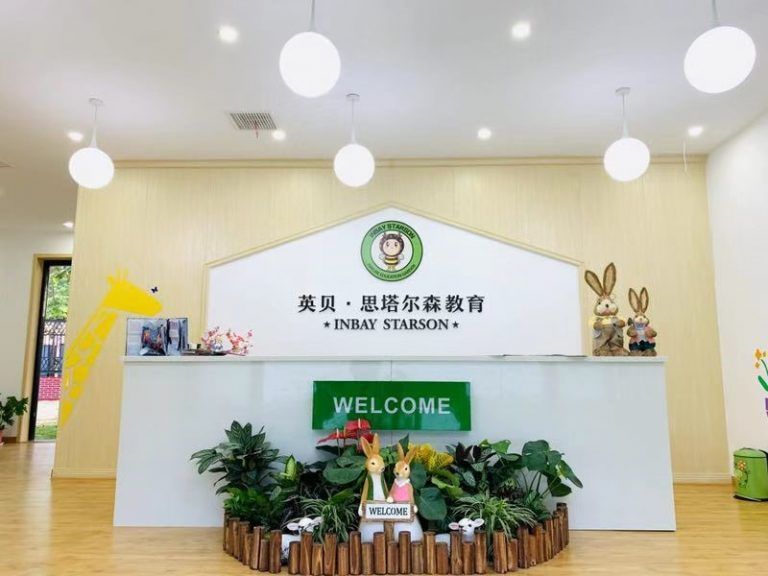
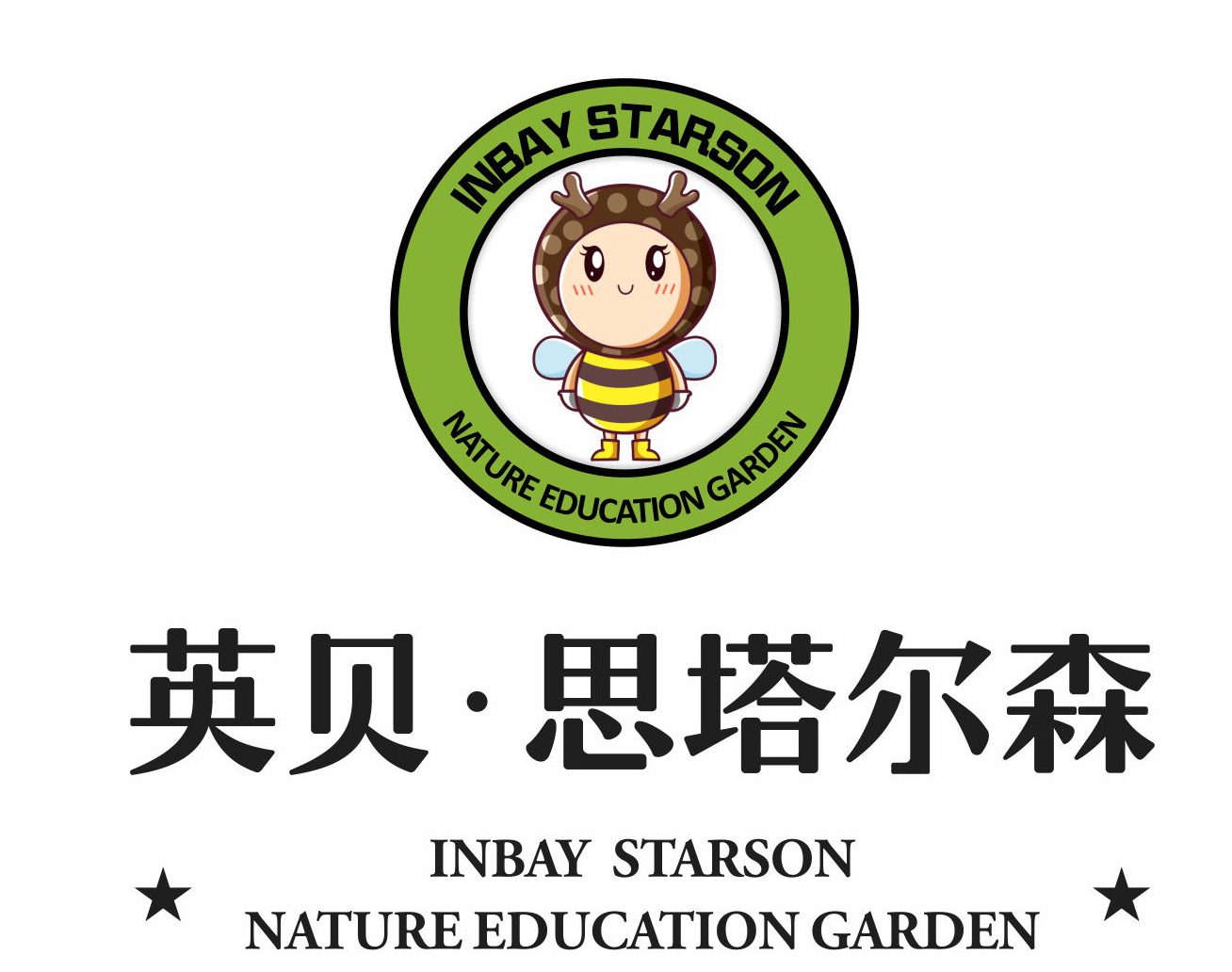
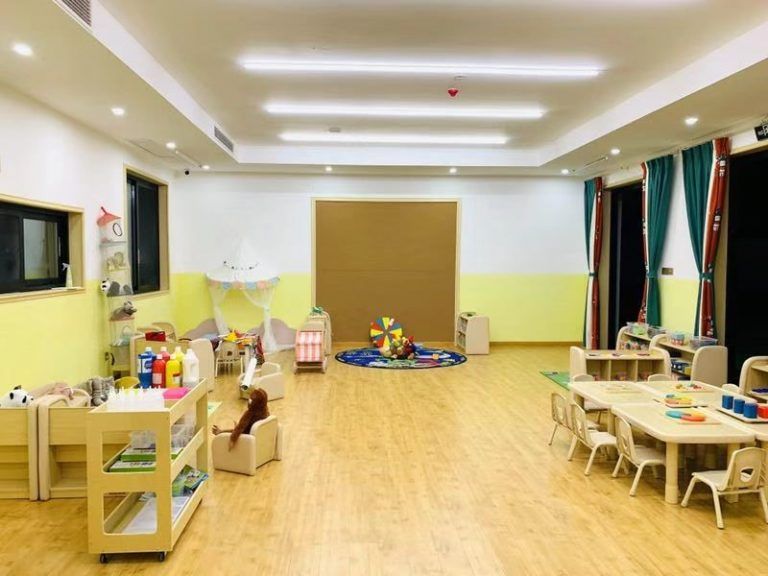
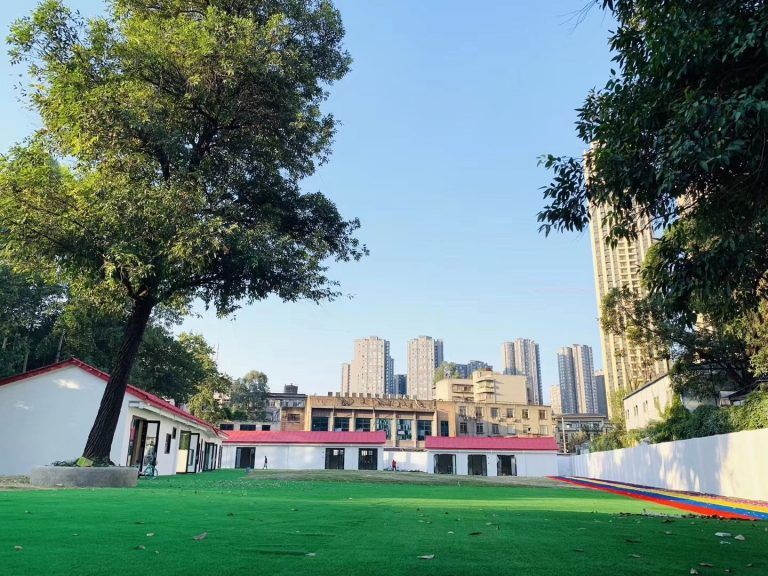
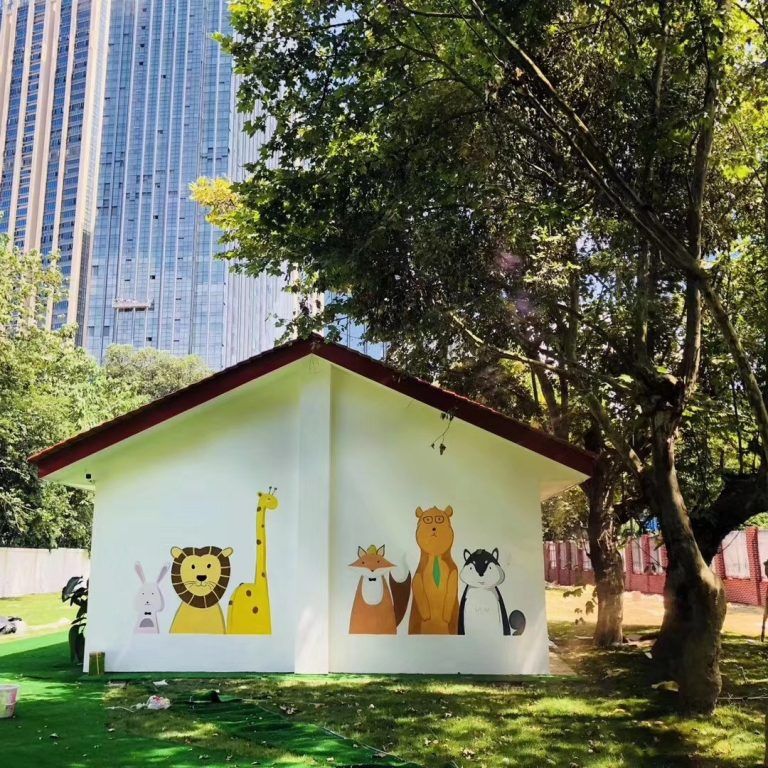
-768x543.jpg)
